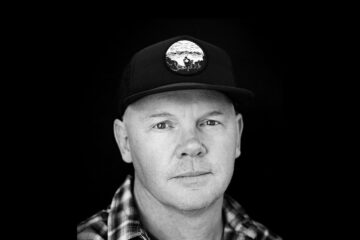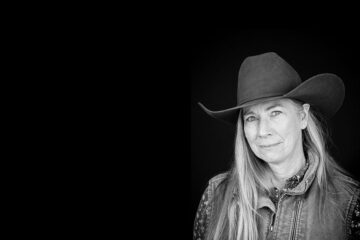Overview: In this short episode of the We Are Chaffee: Looking Upstream podcast, Adam Williams goes solo. He looks back at the diverse guests and topical threads of conversations in the first year of the podcast. He also takes a look at the guests’ stories that will kick off year two.
SHOW NOTES, LINKS, CREDITS & TRANSCRIPT
The We Are Chaffee: Looking Upstream podcast is a collaboration with the Chaffee County Departments of Public Health and Housing, and is supported by the Colorado Public Health & Environment: Office of Health Disparities.
Along with being distributed on popular podcast listening platforms (e.g. Spotify, Apple), Looking Upstream is broadcast weekly at 1 p.m. on Tuesdays, on KHEN 106.9 community radio in Salida, Colo., and can be listened to on-demand via khen.org.
We Are Chaffee
Website: wearechaffee.org
Instagram: instagram.com/wearechaffeepod
Facebook: facebook.com/WeAreChaffee
CREDITS
Looking Upstream Host, Producer, Photographer & Website Manager: Adam Williams
Looking Upstream Engineer & Producer: Jon Pray
We Are Chaffee Community Advocacy Coordinator: Lisa Martin
Director of Chaffee County Public Health and Environment: Andrea Carlstrom
TRANSCRIPT
Note: Transcripts are produced using a transcription service. Although it is largely accurate, minor errors inevitably exist.
[Intro music, guitar instrumental]
Hey, everybody. This is the We Are Chaffee: Looking Upstream podcast and I’m Adam Williams.
I hope that’s not the first time you’ve heard me say those words. But if it is, this is a great time to jump into the flow with Looking Upstream.
We are one year in and building steam. That’s 26 conversations with a total of 32 guests, and counting. That’s 32 people, so far, sharing life stories and perspectives on a wide range of topics.
We’ve heard from guests with a diverse range of life experiences, identities, ages, geographical histories, professions and beliefs. I’ve talked with book authors and world-class athletes, business and civic leaders, creators and builders, entrepreneurs and activists. I’ve talked with men and women in their 20s, and up through all the decades of life experience, to include a World War II veteran who offers nearly 100 years worth of incredible life stories.
Some of the big life topics, the threads we’ve pulled on in these conversations, have involved social and political challenges, substance abuse and recovery, spirituality, faith and death, history, nature and environment, business and entrepreneurship, community and wellbeing, housing affordability. And I’m sure there are more. Resilience and optimism seem to be recurring themes, as well.
A little more specifically here, we’ve delved into experiences of identity, like with race and gender. We’ve talked about matters of physical health, for example public health care, Alzheimer’s, tick-borne disease. We’ve talked about mental health, for example depression and anxiety.
We’ve also shared a lot of laughs along the way. We’ve talked about the old days and old ways, change and new technologies and, for those of us here in the mountains, the ways we love to get out into them and find fun and adventure.
This podcast is not just local, though it features the voices and stories of people who live, work and play locally. We have listeners across the United States and around the world in dozens of countries on six continents.
Now, I’ve lived in a variety of places coast to coast in the U.S. and abroad. But the collection of personalities, histories and talents that have come together in this place, this rural, mountain amazing place, is the most astounding of anywhere I’ve lived.
That makes it easy to draw from the local talent pool, so to speak, and dive into truly universal themes and stories. Many of us have come from elsewhere and have experienced life elsewhere, and we’ve traveled and we’ve pursued life goals elsewhere, yet we ultimately have chosen to come to and be in this place here and now. In that way, we’re connected to each other, but to so many others out there, too.
I think all of that is why this podcast is thriving and growing. I think the momentum is only starting to swell, really. And I expect it to keep going. Especially with your support. I’m not talking about money; this isn’t a PBS fundraising plea. I’m talking about the simple, simple acts of listening to more of the conversations, of sharing conversations that resonate with you on your social media pages. Of telling your family and friends, your coworkers or whoever.
Because there has to be at least one conversation on this podcast, if not many, that has or will speak to you in a meaningful way. Think about this: What have you experienced in your life, the good, the bad, the ugly? We’ve likely talked about something relevant to that.
For example, have you lost someone, have you felt anxiety about the state of the world, have you experienced substance abuse or gone through a health crisis, or a crisis of faith? Or are you an entrepreneur or parent or activist? Maybe you are a remote worker who works at home and doesn’t feel connected with the community in a real way. I’ve been there. Actually, without this podcast, I’d probably still be there. All in all, this podcast is a vehicle for connection. That’s the point.
If you haven’t heard a story like yours already on the podcast, and you live in or around Chaffee County, maybe you’d like to share your story in a conversation with me on this podcast. If so, check out the end of this episode, where I tell you how you can reach out to us.
So, year one is out there and available. You can listen at wearechaffee.org and on any of the podcast players. We’re kicking off year two of Looking Upstream with a couple more fantastic guests.
Coming up first, is my conversation with Joe Parkin. I hesitate to use the term Renaissance Man, because I think it gets overplayed. But you know what I’m getting at when I say those words, so … Joe is something like that.
He’s done many adventurous and incredible things. Joe was a pioneering American professional cyclist in Europe in the 80s and 90s. He also has been a professional and/or highly competitive BMX, mountain bike and motorcycle racer.
He’s been an aerobatic pilot. He spent several years as a highly accomplished, competitive long-range rifle shooter. He toured several times with the rock band of the actress Juliette Lewis. He has published two books, started a magazine, been a clothing designer, bar and bike shop owner.
And if you’ve ever wondered why cycling, like in the Tour de France, is so rampant with illegal doping, I have been, too, and this was my first chance to ask someone from inside that world what the hell is up with that. We also talk about race fixing in the sport.
Following Joe on the podcast, will be entrepreneur and activist Kimi Uno. With Kimi, we get into family history that is deeply intertwined with what I would consider to be a rather shameful period in the history of this nation. Her family fully experienced the internment of Japanese Americans during World War II.
Kimi also came up in a time and place, in Washington State, to be part of the Riot Grrrl movement. We talk about the influence of that, and her family history, in her life. I see Kimi as a courageous leader, and I’m grateful for the conversation with her, and that we get to share it here on Looking Upstream soon.
With Joe and Kimi, we’re off to a big start to year two of the show, with more to follow. I hope you’ll come along.
Thanks for listening.
[Transition music, guitar instrumental]
OUTRO
Alright, once again, I’m Adam Williams, host, producer and photographer for the We Are Chaffee: Looking Upstream podcast. Jon Pray is engineer and producer.
We Are Chaffee: Looking Upstream is a collaboration with the Chaffee County Department of Public Health and the Chaffee Housing Authority. It’s supported by the Colorado Public Health and Environment Office of Health Disparities.
Thank you to Andrea Carlstrom, director of Chaffee County Public Health and Environment; to Lisa Martin, community advocacy coordinator for the We Are Chaffee storytelling initiative; and to Heather Gorby for graphic and web design.
Also, thank you to KHEN 106.9 FM, our community radio partner in Salida, Colorado.
You can learn more about the Looking Upstream podcast and related storytelling initiatives at wearechaffee.org and on Instagram and Facebook @wearechaffee.
If you have comments or know someone in Chaffee County, Colorado, who I should consider talking with on the podcast, you can email us at info@wearechaffee.org.
[Outro music, guitar and horns instrumental]


